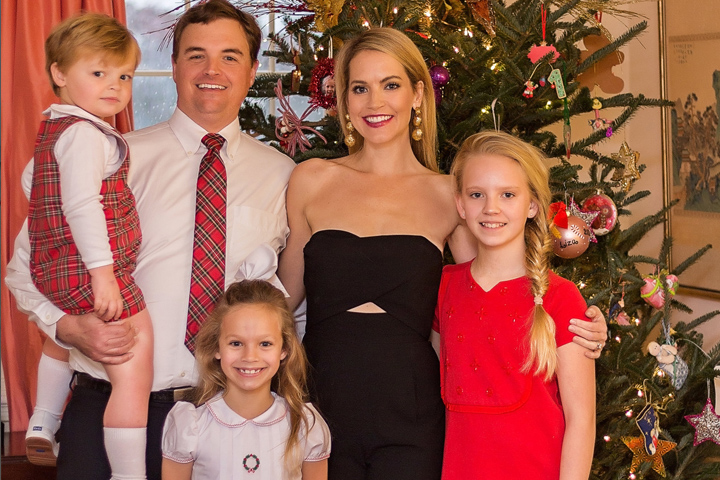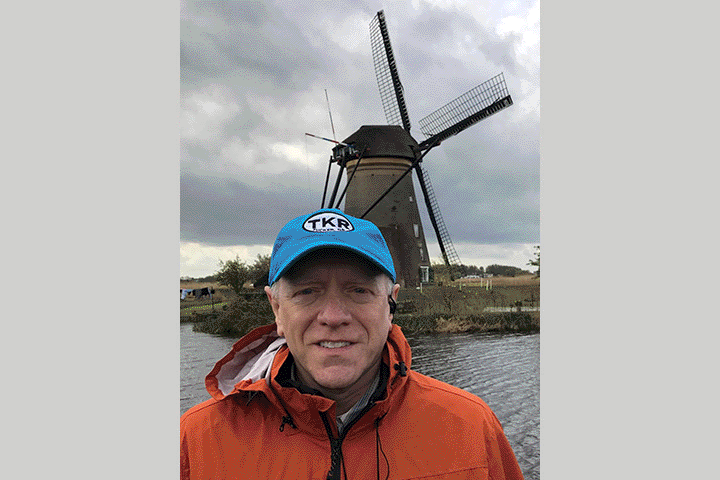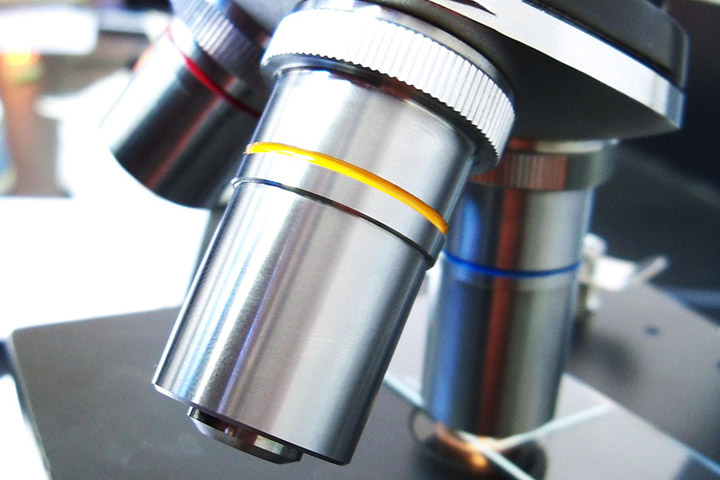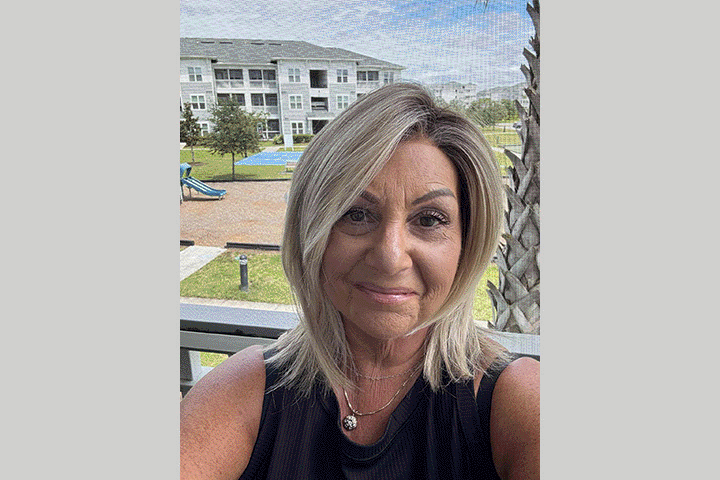I Have So Much to Live For

- A surprising diagnosis
- Traveling to a major cancer center
- Whipple procedure followed by chemotherapy and radiation
- Clinical trial of an anticancer vaccinee
My name is Mary Gillam, and I was officially diagnosed with pancreatic cancer on my 38th birthday.
I am the mother of three young children ages 10, seven, and three. I am also blessed with a wonderful husband, Rob, and we have been married for 11 years. I have embraced a healthy lifestyle all my adult life. I’m a runner, and in October 2016 I completed the Marine Corps Marathon, placing in the top 20 percent.
In the spring of 2017 I wasn’t feeling like myself. I was lethargic, and I was mysteriously losing weight. I became extremely alarmed when I saw that my urine was the color of coffee! So I made an appointment with my OB/GYN, who assured me that I just had a virus. But my symptoms continued and even worsened. With each passing day I felt more and more feeble. I was unable to do my daily five-mile runs, and all my energy was depleted.
Fortunately, I was able to get an appointment with my wonderful local internist, Dr. Kimberly Cerveny. She took one look at my yellowing eyes and skin and said, “I want to send you to the emergency room, where they can do an MRI.”
A Roller-Coaster Ride to Diagnosis
I was told that night there was a mass on my pancreas. The first thing I thought of was Am I going to die? The physician looked me in the eye and shook his head. All I could think about was leaving my precious babies being motherless and making a widower of my good-looking husband. I did not want to put him back on the market.
The very night I was diagnosed, my parents, my husband, and I decided we were not going to accept this as a death sentence—we wanted a second opinion. So we made the four-hour drive to the University of North Carolina Lineberger Comprehensive Cancer Center at Chapel Hill. Many of you know UNC for its reputation on the basketball court, but I am here to tell you not only is it an exceptional athletic school, but also its ability and competence to save lives are second to none.
At 2 a.m. I was admitted to the ER, where I had a repeat MRI and an endoscopic biopsy. The results showed there was a mass, but it was most likely noncancerous. I had the Whipple surgery to remove the mass.
Following the surgery, on April 25, 2017 (my 38th birthday), my wonderful surgeon, Dr. H. J. Kim, delivered the devastating blow. It was, in fact, cancer. Eight of my 15 lymph nodes were cancerous. I felt like I was on a roller-coaster of emotions. First it was cancer, then it wasn’t, now it is. I never asked the stage of my cancer. I was going to fight like hell and didn’t need a number to psych myself out. To this day I refuse to ask!
Chemo, Radiation, and a Clinical Trial
Six weeks post-Whipple surgery I met one of the most incredible women, Dr. Autumn McRee, my oncologist (Dr. McRee now works in the pharmaceutical industry). I connected with her instantaneously. She too is a mother of young children; we are about the same age. I have grown to have not only a professional relationship but also a cherished friendship. She understands that losing this battle is not an option.
I started chemotherapy with my local oncologist, Dr. Valiant Tan of Virginia Oncology. He too was reassuring and optimistic. After completing the standard treatment of Xeloda and gemcitabine, I began radiation treatments. These were particularly tough. Not only did I have to move to Chapel Hill, four hours away from my precious family, but also the radiation left me severely nauseated and weak. Yet I survived with the loving care of my mother, who accompanied me to every radiation treatment, and the UNC team. My radiologist, Dr. Andrew Wang (now at UTSouthwestern in Dallas, Texas), was extraordinary and helped me navigate through the rocky waters of nausea and fatigue. Every weekend I was reunited with my sweet little ones. This gave me the will to keep fighting. I finished up two more rounds of chemo and was happy to put treatment behind me!
Now I have had three clear scans and have passed my one-year Whipple anniversary. I am excited to be a part of a clinical trial for a vaccine, designed to help my immune system recognize and fight a protein that is abundantly present in cancer cells . The name of this vaccine is hTERT immunotherapy.
Mrs. Gillam Goes to Washington
In the spring of 2018, I was invited to be part of a group going to Washington, D.C., for Capitol Hill Day to advocate for cancer patients and speak on behalf of funding for more cancer research. I feel blessed and empowered having God give me this purpose for my suffering. This is a gift of another day. Another day—to see my children laugh. Another day—to go for a run. Another day—to kiss my husband. Another day—to enjoy my dearest friends! Oh yeah, and another day to go shopping for that perfect dress to wear on Capitol Hill Day!!!!
I found that perfect dress for Washington, D.C., which did not disappoint!! I must admit that initially it was intimidating to go before Congress and share my cancer journey. As many of you well know, having to share your diagnosis can be emotional. However, I stoically triumphed and made my story—as well as your stories—heard. One of the many good things about Congress is that Democrat or Republican, everyone wants to cure cancer. I am happy to report that billions of dollars have been promised for research. Unfortunately, pancreatic cancer has been taking a backseat to the more prevalent cancers such as ovarian, breast, and prostate. I’d like to think I made a difference in the pancreatic cancer world. My story was shared with many important people who are instrumental in enabling clinical trials, university research, and so much more.
I am feeling well, with the exception of not being able to indulge in certain foods I could before I had cancer, but I’ll take it! It’s such a cheap price to pay when I have so much to live for!!! I’m here sharing my story with you! I thank God every day for all the sweet gifts in my life and for allowing me to live another cancer-free day!
Five years after her pancreatic cancer diagnosis, Mary passed away. She gave her all towards making treatment better for patients who come after her, by participating in a clinical trial and advocating for research and care. Our deepest condolences to her family.





